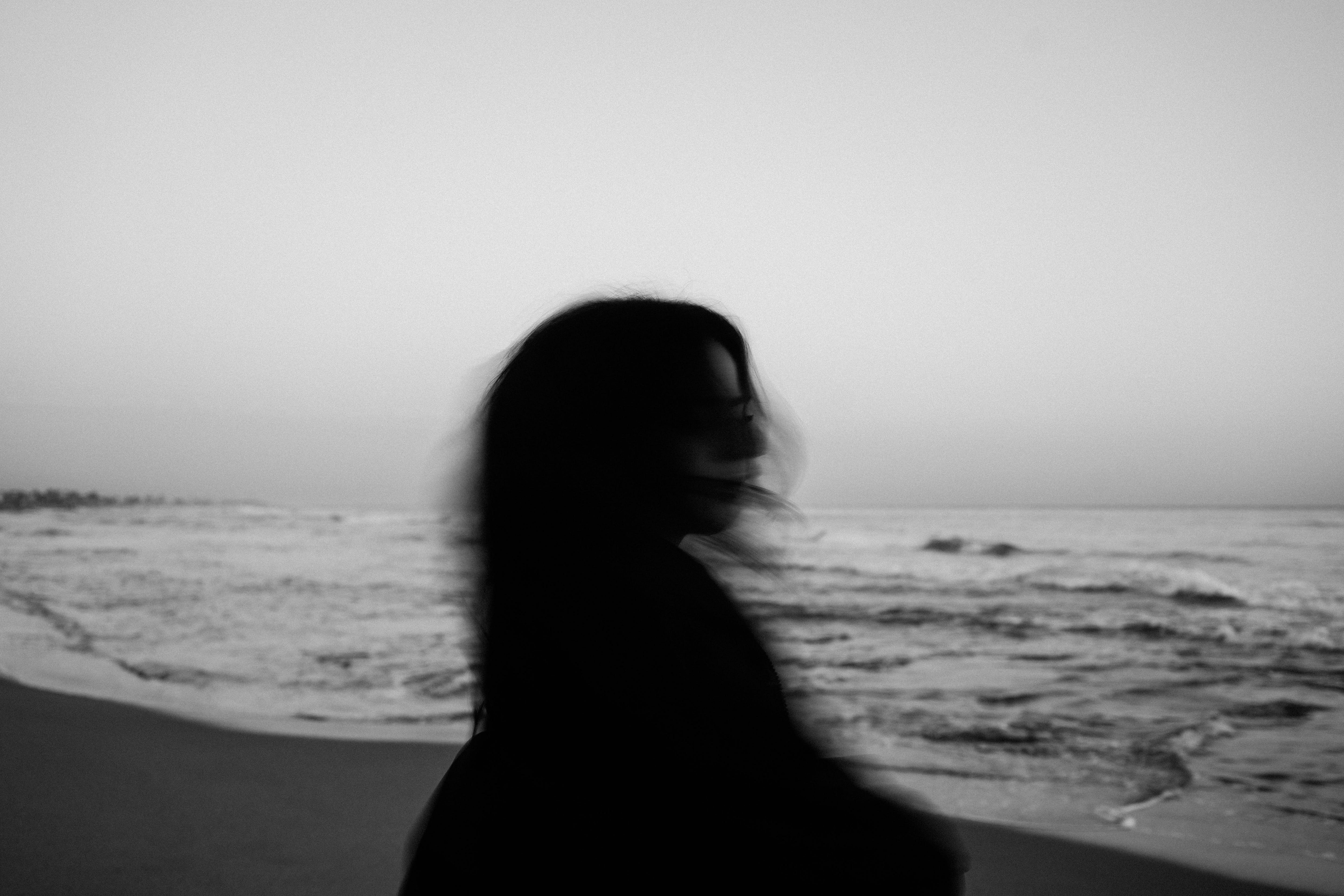Pockets of utopia
What capitalism's inevitable collapse, disaster anarchism, mutual aid, and human nature can teach us about the curious concept of Utopia.
Do you not have dreams?
Do you not have desires?
I dream of a world in which people live in (relative) harmony with nature and each other; in which they are free to pursue their passions and interests while reconnecting to the fundamental human experience; in which they are not enslaved by the demands of a ruthless and unsustainable system that exploits them and their surrounding ecosystems. A world in which freedom, happiness, peace, community, and justice are not just words and hollow phrases to be wielded as propaganda, but realities.
I realize I dream of Utopia.
Can we ever achieve such a utopian state of society? Or are we who think and write of such things —
might be the most prominent member of this caste here on Substack. Others are or, from the more practical side, — entitled dreamers, disconnected from the real world and its many hardships? Is Utopia doomed to remain a fantasy, a mirage, a delusion?Or in other words: Are we destined to strive forever for that which is unattainable?
The (impossible) dream
Answers to above question:
Yes, Utopia is impossible because I think it’s not a fixed destination, but a journey, a process, a state of mind. There is no end goal here, there cannot be. Hence there is no marker at which we can say: “Ah, yes. Now we live in Utopia.”
No, Utopia is not impossible because I think it cannot be imposed or enforced on a large scale, but only experienced and created on a smaller, localized level — in what I will subsequently call “Pockets of Utopia.” This is the gist of the anarchist ideology, by the way, if you want to put a label on it.
Why trust and rely on higher entities (the state, market, kings and queens, priests) to provide for you when they are all so blatantly corrupted? Why not take matters into your own hands? Why not build a community, a pocket of solace, amidst a dark world?
Why not become free?
Impossible, idealistic, naive? — Perhaps. But let me explain, at least.
What are these Pockets of Utopia?
Pockets of Utopia are communities of people who share a common vision and values, who cooperate and collaborate rather than compete and conflict, who respect and care for each other and the environment, who practice democracy and self-governance, who cultivate creativity and diversity, who celebrate life and joy.
They are not perfect or flawless, but authentic and meaningful. They are not isolated or exclusive, but connected and inclusive. They are not static or stagnant, but dynamic and evolving.
And they already exist.
Intentional communities, eco-villages, co-housing projects, transition towns such as Kinsale, Ireland, or the neighborhood of Portobello in Edinburgh, social movements, alternative schools, cooperatives, or simply… networks of friends, families, and neighbors.
You are, more likely than not, already living in a small Pocket of Utopia.
Would you not willingly, and without want for recompensation, wholeheartedly help out your family members and closest friends with whatever they need? Perhaps even your neighbors? Would you not share with them food, water, medicine, housing, resources? And would you not expect them to behave the same way — not for profit, but out of basic human love and compassion?
Compassion? Common human decency? Helping others? Sounds suspiciously like anarchism:
The only ways our closest social networks differ from ‘true’ Pockets of Utopia is by their lack of geographical concentration and, more importantly, by not being self-sufficient, and hence dependent on the external world not on a basis of constructive ‘inter-pocket cooperation’ but by the destructive profit and greed dynamics of capitalism.
When the pockets turn from bubbles that exist despite the external world, to open communities that exist in the external world, they will become real.
Why Pockets of Utopia are the ONLY way toward Utopia
It should be quite obvious, at least to all who read this publication, that the current capitalist order is not only incompatible with Utopia, however you might define it, but also doomed to collapse.
Capitalism is based on endless growth, consumption, accumulation, exploitation, inequality, violence, and alienation. It is a system that destroys the natural resources that sustain life and replaces them with artificial needs and desires that, by design, can never be satisfied, and it generates social problems that can never be solved for solving them would mean destroying the system itself.
The signs of collapse are ubiquitous: climate change, ecological annihilation, economic crisis, social division, wars, endless wars. The system is cracking under its own weight. The system is failing us. The system is killing us.
We cannot wait for the system to change and reform itself. Social democrats have tried for at least a century now, and, at the most, produced temporary concessions to the working class that can and will be stripped away at the first signs of crisis, i.e. falling profits. Activists who point out the flaws in the system are being either incorporated and co-opted into the liberal narrative (see what happened to the Black Lives Matter movement) or otherwise detained and ostracized.
Well, if we cannot rely on the system to save us, then we must save ourselves. We must create our own systems.
But how do we do that? you might ask.
Oh, it happens quite naturally. And there is evidence and precedence.
The curious case of disaster anarchism
In times of crisis, when the system crumbles and fades to static background noise, the people rise up, take responsibility, and organize themselves without any external authority to tell them how. Complex, self-governed systems of mutual aid arise spontaneously and effectively, distributing aid and resources as well as providing social relief.
Don’t trust me? Others have written about this.
In her remarkable book A Paradise Built in Hell, American writer Rebecca Solnit explores how exactly people manage to come together and cooperate in the aftermath of disasters, such as earthquakes, hurricanes, floods, and wars. She challenges the common Mad Max-esque assumption that catastrophes bring out the worst in people and shows how, instead, and despite all suffering, they can inspire solidarity, generosity, and courage. A light at the end of the tunnel, so to speak.
Solnit goes on to criticize authorities and elites who most often try to impose order and control over the spontaneous, self-organized, anarchist communities that emerge in these disaster zones, dismantling functioning lines of aid and communication in an effort to ‘do it by the book,’ and eventually taking credit where none is due.
Remarkable examples, straight from the imperial center, include:
The San Francisco earthquake of 1906, which sparked a citywide effort to rescue survivors, provide food and shelter, and rebuild the city. Solnit describes how ordinary citizens formed mutual aid societies, neighborhood committees, and volunteer brigades to cope with the crisis. She also documents how military and government forces tried to suppress the grassroots initiatives and enforce martial law.
The aftermath of Hurricane Katrina in New Orleans in 2005, which exposed the deep inequalities, inherent racism, and injustices of American society. Solnit reveals how people organized themselves to survive, help each other, and resist the fascist-like violence exposed by (some) police officers and self-declared protectors of private property. She also denounces the negligence, incompetence, and sheer brutality of the federal government and the private entities who afterward exploited the disaster for profit.
There are many more examples to be found in the book and they all steer toward the same conclusion: in the absence of abstract institutionalized authority, humanity prevails. This was after all, as David Graeber and David Wengrow argue in The Dawn of Everything (I know, I mention this book all the time. It is just so good.), the prevailing mode of social organization throughout the majority of human existence.
What even is Utopia? — DIY
Utopia is not a single, uniform, and universal concept, but rather a diverse, plural, and contextual one. Instead of aiming for a large-scale, forced-upon, top-down transformation of society (what we could call ‘classic communism’ if we were a bit cynical), we should focus on creating and nurturing small-scale and bottom-up Pockets of Utopia that reflect our individual values, needs, and aspirations.
What do you want? What are you missing in life?
The inevitable collapse of capitalism will create both significant challenges and opportunities for the emergence of such ‘alternative’ forms of living. The resulting political vacuum will promote the necessary material conditions upon which Pockets of Utopia can thrive, building on the experiences of disaster anarchism and lessons from history (which we did not talk about here).
So, are Pockets of Utopia inevitable?
No, most definitely not. They are the result of conscious human intervention and constant struggle. Utopia, in the truest sense of the word, does not, and will never, exist, for we are humans, individuals with weaknesses and faults as well as strengths. Paramount to the idea of bottom-up Utopias is the possibility to choose for oneself and define for oneself what is Utopia. How do you want to live? There cannot be a single solution to the human longing for a better life; there can only be, well, Pockets of Utopia, as diverse and far-ranging as humans themselves.
Any attempt at imposing universal solutions shall, and must, fail. No one is free if not all are free.
I’m author, writer, and activist Antonio Melonio, the creator of Beneath the Pavement. If you enjoyed this essay on Utopia, please consider becoming a paid subscriber here on Substack or over on Patreon. It’s the best way to support Beneath the Pavement and help me put out more and higher-quality content.
If monthly contributions are not your thing (I understand), you can also leave me a tip or some coffee money over on PayPal. Thank you. Cheers!
🕧 The After Hours: My personal Pocket of Utopia
In the essay above, we have thoroughly examined the concept of ‘Pockets of Utopia’ and how they could (and often do) come to pass. Well, what does my personal Utopian pocket look like? And what does the term Utopia even mean to me?
I am a very introverted person. I struggle with ADHD and social anxiety, often choosing to voluntarily refrain from stressful social interactions. I love my alone time, but I love spending time with my partner (and sometimes no one else) even more.
Humans are very diverse, is my point. There will always be extroverts, introverts such as me, who nevertheless require social interactions, of course, shy ones, loud ones, ones who love taking the lead, others who prefer to follow, ones who are more community-oriented, others who are more individualistic. Some love nature and hiking, others enjoy modern comforts and entertainment.
I cannot understand it, but some people even enjoy Marvel movies.
All that is perfectly alright.
Instead of trying to come up with an over-encompassing one-size-fits-all society and socio-economic system, we must celebrate our differences and allow for the freedom to make and re-make our social arrangements at will. The freedom to leave, if a particular community does not conform to one’s needs, and rebuild (or not) somewhere else is paramount.
So what does my personal Utopia look like? There can be no answer, for there are as many possibilities as the human mind can envision. My Utopia might be a Solarpunk one — nature and community intermingled with modern, sustainable technology — while yours might be of the more primitivistic kind (or anything else). The important thing is not to strive to impose one’s will over others; not to think that my personal Utopia is yours as well.
It might not be a good answer, but it’s the one I can give. I reject being told by others how to live and what to wish for. Educate yourself, think about it, and then wish for yourself.






